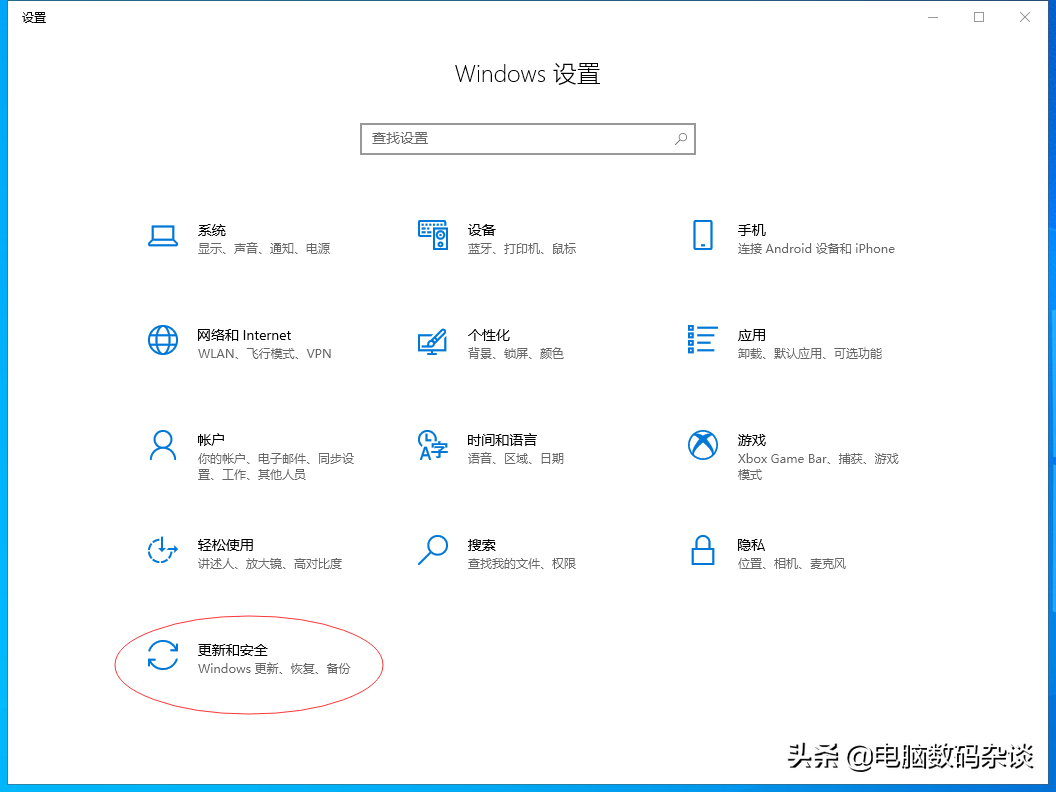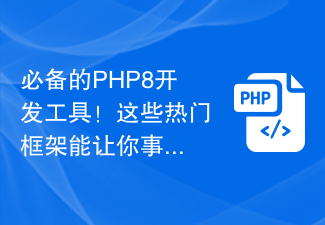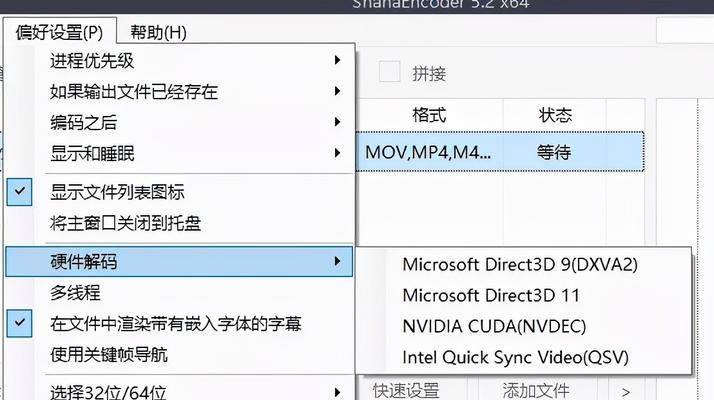 Backend Development
Backend Development C++
C++ Recommended essential software for learning C language, allowing you to get twice the result with half the effort!
Recommended essential software for learning C language, allowing you to get twice the result with half the effort!
Recommended essential software for learning C language, allowing you to get twice the result with half the effort!
As a broad modeling language, C language occupies an important position in the fields of computer science and programming. For novices who want to learn C language, it is very important to choose the development environment and tools that suit them. In this article, I will recommend several essential C language development software to everyone, and provide some code examples to help you better learn and practice C language.
- Visual Studio Code (VSCode)
As a powerful lightweight code editor, VSCode is the first choice of many programmers. It supports multiple programming languages, including C language. VSCode provides a wealth of plug-ins and functions, such as code completion, syntax highlighting, automatic code organization, debugging functions, etc. You can use VSCode to write, debug and manage your C code. The following is a simple C code example:
#include <stdio.h>
int main() {
printf("Hello, World!");
return 0;
}- Code::Blocks
Code::Blocks is an open source integrated development environment (IDE), especially suitable for beginners. It provides an intuitive user interface and simple setup, making programming easier. Code::Blocks supports C and C languages, and can also use the GNU compiler to compile and run your code. The following is an example of C code written using Code::Blocks:
#include <stdio.h>
int main() {
int num1, num2, sum;
printf("Enter two numbers: ");
scanf("%d %d", &num1, &num2);
sum = num1 + num2;
printf("Sum: %d", sum);
return 0;
}- Dev-C
Dev-C is a simple and easy-to-use integrated development environment for Windows system. It provides a complete set of tools, including compilers, debuggers, code editors, and more. Dev-C supports C language and C language, and comes with a friendly user interface and simple layout. The following is an example of C code written in Dev-C:
#include <stdio.h>
int main() {
int num;
printf("Enter a number: ");
scanf("%d", &num);
if (num % 2 == 0) {
printf("%d is even.", num);
} else {
printf("%d is odd.", num);
}
return 0;
}- GCC
GCC (GNU Compiler Collection) is a widely used set of compilers for programming languages. For newbies learning C language, using the GCC compiler is a good choice. It can be used on different operating systems and supports most C language standards. You can use the command line interface to write and run your C code. The following is an example of C code written using the GCC compiler:
#include <stdio.h>
int main() {
int n, i;
printf("Enter a number: ");
scanf("%d", &n);
for (i = 1; i <= 10; i++) {
printf("%d x %d = %d
", n, i, n * i);
}
return 0;
}No matter which development environment and tools you choose to learn C language, the key is to maintain continuous learning and practice. By constantly writing and debugging code, you can deepen your understanding and mastery of the C language, thereby improving your programming abilities. I hope the software recommendations and code examples provided in this article will be helpful to your learning!
The above is the detailed content of Recommended essential software for learning C language, allowing you to get twice the result with half the effort!. For more information, please follow other related articles on the PHP Chinese website!
 更新驱动用哪个软件好「附:电脑WINDOWS系统驱动更新软件推荐」Feb 06, 2024 pm 06:22 PM
更新驱动用哪个软件好「附:电脑WINDOWS系统驱动更新软件推荐」Feb 06, 2024 pm 06:22 PM电脑系统安装完毕后,有个非常重要的后续工作要做,那就是给电脑安装硬件驱动。每一个驱动都从官网下载,非常麻烦,这时我们就需要用到驱动更新软件了。这里我推荐几款软件供大家选用。1:驱动精灵这款驱动更新软件是一款老牌产品,拥有非常全面的驱动库。然而,它的一个缺点是在安装时需要仔细阅读右下角的小字提示,以确定是勾选还是去掉勾选。一不小心就会安装金山全家桶到电脑上。2:驱动人生这个软件前几年非常好用,纯净无广告,可能是出于盈利压力,后来内置广告推广垃圾软件太多就很少用了,现在新版本重新出发,好像开始卖会员
 手机上用的视频压缩软件推荐(压缩视频无损画质)May 06, 2024 pm 06:31 PM
手机上用的视频压缩软件推荐(压缩视频无损画质)May 06, 2024 pm 06:31 PM我们越来越多地使用手机观看和录制视频,随着智能手机的发展。高清视频的存储占用空间很大,限制了我们手机上视频的数量和质量、然而。同时保持视频画质、本文将向大家推荐几款手机上用的视频压缩软件、在这样的背景下,帮助你释放手机空间。1.视频压缩软件是什么?你可以将视频文件的大小减小到更小的尺寸,从而释放手机存储空间,通过使用视频压缩软件。视频的画质也不会受到明显的影响,即使文件变小,这种压缩是无损的。2.压缩视频的必要性现在我们可以轻松地拍摄高清甚至是4K分辨率的视频,随着手机摄像功能的提升。这些高清视
 推荐手机上免费的解压软件(解压文件轻松快捷)Jun 01, 2024 pm 08:08 PM
推荐手机上免费的解压软件(解压文件轻松快捷)Jun 01, 2024 pm 08:08 PM尤其是在接收和发送文件时、我们常常会遇到需要解压文件的情况,在日常生活中。许多手机应用开发者推出了免费的解压软件,为了方便快捷地解压文件。帮助读者更好地处理各种压缩文件,本文将推荐一些手机上免费且功能强大的解压软件。1.RAR解压工具用户可以轻松解压常见的RAR格式文件,通过RAR解压工具,包括分卷文件。并提供密码保护功能,同时,它还支持压缩文件。2.7-Zip7-TAR等,Zip是一款功能强大的解压软件,ZIP、它支持多种格式,包括RAR。7,除了解压文件外-Zip还可以创建和管理压缩文件夹。
 必备的PHP8开发工具!这些热门框架能让你事半功倍!Jan 05, 2024 pm 03:36 PM
必备的PHP8开发工具!这些热门框架能让你事半功倍!Jan 05, 2024 pm 03:36 PMPHP8开发必备!这些主流框架让你事半功倍!随着互联网的快速发展,PHP作为一种强大的后端开发语言,得到了广泛应用。而PHP8的发布更是为PHP开发者带来了许多令人激动的新特性和性能优化。为了发挥PHP8的优势,通过使用主流框架可以事半功倍地进行开发。本文将介绍几个主流的PHP框架,并提供具体的代码示例,帮助开发者更好地理解和应用这些框架。Laravel框架
 推荐几款优秀的手机CDR看图软件(提升图片浏览体验)May 07, 2024 pm 03:10 PM
推荐几款优秀的手机CDR看图软件(提升图片浏览体验)May 07, 2024 pm 03:10 PM如今,而手机中的看图软件更是我们日常使用最频繁的应用之一,手机已成为人们生活中不可或缺的一部分。一款好用的手机CDR看图软件将极大地提升用户的图片浏览体验、针对那些经常需要查看和处理CDR格式文件的用户来说。帮助用户畅享高质量的视觉盛宴,本文将推荐几款优秀的手机CDR看图软件。一:CDR格式简介常用于设计和排版领域,CDR格式全称为CorelDRAW图形文件,是一种常见的矢量图形文件格式。很多设计师和艺术家都喜欢使用CDR格式来保存和分享自己的作品,由于其在设计制作上的优势。二:为何需要手机CD
 免费手机视频压缩软件推荐(节省空间)Jun 02, 2024 pm 05:38 PM
免费手机视频压缩软件推荐(节省空间)Jun 02, 2024 pm 05:38 PM我们越来越喜欢用手机记录生活中的精彩瞬间,随着手机拍摄功能的不断提升。视频文件占用较大的存储空间常常成为我们面临的一个难题,然而。找到一款免费的手机视频压缩软件变得尤为重要,在这样的背景下。畅享影音乐趣,免费的手机视频压缩软件、本文将为大家推荐几款功能强大,帮助您轻松解决存储空间问题,操作简便。解读手机视频压缩软件的重要性它能够帮助我们将视频文件的大小降低,手机视频压缩软件的重要性不言而喻、从而节省存储空间。推荐1:VideoCompressor-CompactVideoVideoCompres
 学习C语言必备软件推荐,让你事半功倍!Feb 20, 2024 pm 12:03 PM
学习C语言必备软件推荐,让你事半功倍!Feb 20, 2024 pm 12:03 PM学习C语言必备软件推荐,让你事半功倍!C语言作为一种广泛建模语言,在计算机科学和编程领域占据了重要的地位。对于想要学习C语言的新手来说,选择适合自己的开发环境和工具是非常关键的。在这篇文章中,我将向大家推荐几款必备的C语言开发软件,并提供一些代码示例,帮助大家更好地学习和实践C语言。VisualStudioCode(VSCode)作为一款强大的轻量级代
 推荐适用于Win11的驱动软件Dec 29, 2023 pm 09:48 PM
推荐适用于Win11的驱动软件Dec 29, 2023 pm 09:48 PM对于电脑用户来说,驱动软件是必不可少的。它能够帮助用户快速安装驱动程序,提高电脑的性能。然而,现在市面上的驱动软件实在太多,很多用户可能不知道该选择哪一个。因此,我给大家推荐一款在win10系统下非常好用的驱动软件。让我们一起来看看吧。win11装驱动软件哪个好:万能驱动离线版的安装方法及下载地址如下:1.首先,打开你的浏览器,输入“万能驱动离线版下载”进行搜索。2.在搜索结果中,找到一个可信赖的下载网站,如官方网站或知名的软件下载站。3.点击进入下载页面,并找到适合你的操作系统版本的万能驱动离


Hot AI Tools

Undresser.AI Undress
AI-powered app for creating realistic nude photos

AI Clothes Remover
Online AI tool for removing clothes from photos.

Undress AI Tool
Undress images for free

Clothoff.io
AI clothes remover

AI Hentai Generator
Generate AI Hentai for free.

Hot Article

Hot Tools

Dreamweaver CS6
Visual web development tools

DVWA
Damn Vulnerable Web App (DVWA) is a PHP/MySQL web application that is very vulnerable. Its main goals are to be an aid for security professionals to test their skills and tools in a legal environment, to help web developers better understand the process of securing web applications, and to help teachers/students teach/learn in a classroom environment Web application security. The goal of DVWA is to practice some of the most common web vulnerabilities through a simple and straightforward interface, with varying degrees of difficulty. Please note that this software

WebStorm Mac version
Useful JavaScript development tools

Atom editor mac version download
The most popular open source editor

MinGW - Minimalist GNU for Windows
This project is in the process of being migrated to osdn.net/projects/mingw, you can continue to follow us there. MinGW: A native Windows port of the GNU Compiler Collection (GCC), freely distributable import libraries and header files for building native Windows applications; includes extensions to the MSVC runtime to support C99 functionality. All MinGW software can run on 64-bit Windows platforms.





